0 Comments
7/18/2020 0 Comments Ellery Akers :: Julia B. Levine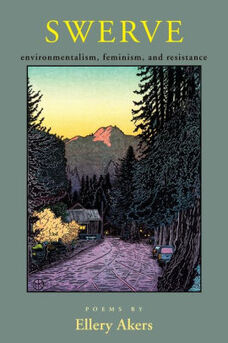 I call shinbones of water skinnying down into sluice boxes. Brackish water, sulfur-smelling water, sludge. Rain in rain barrels, clear water spilling over dams and clear water that has never been dammed. I confront the brink even though I’m part of the brink. from "We Have the Power to Pull Back from the Brink" Ellery Akers is the author of three poetry books, most recently, Swerve: Environmentalism, Feminism, and Resistance. She’s won thirteen national writing awards, including an IPPY Award and the Poetry International Prize. Her poetry has been featured on National Public Radio and in Poetry and The New York Times Magazine. I was introduced to Ellery over email by our mutual friend, the poet Ruth Schwartz. At our first meeting, Ellery and I took a walk around a small pond. I quickly realized that Ellery was an extraordinary ecologist, who knew so much about the flora and fauna of West Marin, as well as a woman brimming with love for good poetry. Not only would she recite lines from Hopkins or Dickinson by heart to me as we walked and talked, but she and I would engage in delightful conversations about newer work from modern poets that we’d just read. We have been friends for several years now, and workshop together regularly in a wonderful group that Ellery invited me to join. But I love Ellery for more than all of this. Ellery is also one of the most dedicated environmentalists I know, and through her incredible new book, Swerve, has inspired me to feel less hopeless and more willing to take action to save our planet. I feel such admiration, respect, and deep gratitude to Ellery; consider reading her work, as you will too! ~Julia B. Levine, July 2020
7/11/2016 0 Comments Taylor Graham :: Irene Lipshin
5/22/2016 0 Comments Idris Anderson :: Beverly Burch
5/16/2016 0 Comments Charlotte Muse :: Priscilla Lee
4/10/2016 0 Comments Priscilla Lee :: Cathryn Shea
2/22/2016 0 Comments Cheryl Dumesnil :: Gail Entrekin
1/10/2016 2 Comments Merna Dyer Skinner :: Devi Laskar
12/14/2015 1 Comment 12.14.15: Cross Tie: Mari L'Esperance
12/6/2015 1 Comment 12.6.15: Cross Tie: Nancy Kuhl
11/22/2015 1 Comment 11.22.15: Sonia Greenfield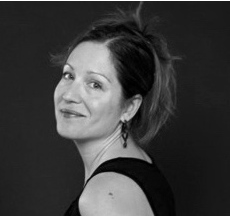 I encountered Sonia Greenfield for the first time at a reading of ekphrastic poems that I participated in at the Riverside Art Museum last August. I was bowled over by her “Nafsicrate Considers Bruegel’s Famous Work”: I told Daedalus to watch him, goddammit, so now here I am waiting for my son to breaststroke home to me, held up on fingers of green foam. Waiting past the rise and fall of Rome through to Pieter’s brushwork which rendered the sun like a lemon on fire . . . . I loved the point of view in this poem, the implicit war between the parents, the portrait of infinite, focused and pragmatic mother-love which maintains even self-deceiving hope. And I promptly bought Sonia Greenfield's first book, Boy with a Halo at the Farmer's Market, winner of the 2014 Codhill Poetry Award. Greenfield's fierce and witty work is highly inventive, and often other-directed, as in the title poem, which imagines the later life of this boy with a "metal halo" "bolted into his skull"—a life in which a broken neck turns out to have been "a lucky break." She re-invents myth, again, in "Afternoon with Redón," another ekphrastic poem, in which Galatea is not the victim of Polyphemus, but "like the heartbreaker, / the boy-teaser, the self-pleaser / who only thought to have some fun," and he "like a monster-hearted boy before he buys / his gun." In "Milk Carton Kids," she invents the places and ways children can disappear forever, not even to be found "stuffed / in a trunk" or "dragged from a lake." She asks how "thoughts and prayers go out" in response to a disaster ("Like a loon's / song transmitted by Morse?"), as when "the first plane hit" in 2001. Her metaphors and similes are fresh and exact. "At night bugs came out / and flicked their shells open // like switchblades." ("Pestilence"). They are also compressed, deft, and unsentimental; in “Sago Mine, West Virginia”—about the explosion that killed twelve of thirteen miners—the coal is described as “a black ribbon pinned to / a lapel.” Greenfield's is often a dire, threatening world seen with a cold, clear eye, a world in which "schools are ever on lockdown behind / chain-link where the mothers cling" ("School Rules"), yet there can be sly amusement in her clear-eyed inventiveness. In "A Vision in Stride Rite," the baby throws his sandal out of the pram, and eats champagne grapes "as he surveys his subjects." The narrator (echoing Allen Ginsberg?), concludes: Here he is, Baby Bacchus, making the most of privilege as his servant puts her shoulder to the wheel and shoves on up the hill. I admire the strategies of so many of these poems, the way the poet manages their "plots,” or turns them multiple times. In "Morning Coffee with Chagall," she describes a Chagall painting on a coffee cup, a painting in which The bride and groom lift off as if their feet were filled with helium, a bouquet of peonies in her hands, lips locked as if they're inflating each other like elegant balloons . . . The poem only turns neatly toward the self in the third line from the end, when the pronoun "my" deftly enters: Held aloft, alive-- before their feet touch the ground, before dishes need to be done. Before the cup is drained, rinsed and shut away in the hot spray of my top-of-the-line machine, caught flying before the gravity of domestic routine. I look forward to further work from the accomplished Sonia Greenfield. -- Judy Kronenfeld 11/9/2015 1 Comment 11.9.15: Susan Browne
10/27/2015 2 Comments 10.27.15: Beverly Voigt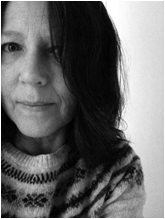 As Voigt is quite a reserved and private person, I am always surprised and delighted by her insight, and her generosity to share herself with the reader. She is intelligent and has a quiet grace about her and through her work. What I appreciate about her poetry is the quiet way in which her poems unfold and reveal themselves: no loud bangs and thrashing metaphors, no hyperbole of language, but a certain knowing that she is at work and in service of the poem. And respectful of her art, the reader, and her subject. Beverly writes often of her upbringing in Pittsburgh. Coming from a large family, many of her poems are of the reunions, dinners, or get-togethers on the house porch or in a historic restaurant in her home town. Her closeness to nature, how she walks through the world in wonder of the forests, and what she chooses to see, is a source of great joy to her, and a source of wonderful poetry of the natural world, for us. -- Carine Topal Blue Mother All that long night we hovered, all of us in the room, watching her slow retreat. Her feet so cold, her fingers going blue. Again and again she raised her arm, wanting out, wanting back. Again and again, I guided it down to the bed. All the care she’d given me, repaid in such a small gift. Blue mother in the bed-- Venus in marble—glowing down that long hallway. Legs in folds of winding sheets. One shoulder shrugging off the world, the other arm missing, reaching. I think of the apple tree in blossom whose branch I’d once pulled toward me. Whoa, I whispered, when it reared in the wind. I’ve got you. Beverly Voigt 10/12/2015 3 Comments 10.12.15: Rebecca del Rio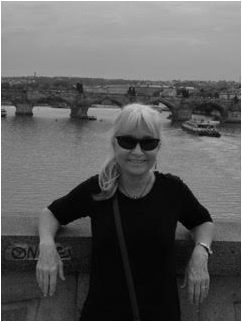 When I first recognized that my words were falling onto paper in poetic form, that is, when I started writing poems and calling them that, I felt like a surprised and vulnerable fledgling bird. And the voice that caught and lofted me further forwards was Rebecca del Rio’s. Rebecca is an American-born poet, mother, and grandmother who divides her time between Northern California and Catalunya (Spain). We met, and I became familiar with her work, because we both attend a Zen meditation center that places creativity and compassion at the center of its practice. Rebecca’s poetry has been published in literary journals in the United States, Canada, and Europe, and she holds degrees in both creative writing and public health. For over twenty-five years, she worked as an investigator in the Superior Court in Sonoma County, California, and she has also been deeply involved in social work and public health projects in Guatemala. Her extensive work and travel have opened her eyes to multiple histories, and to global suffering. Rebecca writes poems determined to walk in the dark with beauty. “To awaken here,” she writes at the close of her poem “Auschwitz-Birkenau,” Is to know one’s Darkness, and not Turning from it, see that light. She questions unashamedly (“Who am I / in this enormous evil?”). She can dwell in the large dilemmas (“When there’s not enough to eat… we wander… We step into occupied / territory, call it our own…”) and capture small moments in crystals of specificity (“Begin with tools: a hammer, / a hoe. A moment under gathering / clouds…”). She made it clear to me that a poet is served by being observant in so many ways—watching our dreams, reading the newspapers, listening to the small, routine habits of speech (“…we say, as a way / to soothe our separate souls, / ‘We’re under the same moon.’ / Why not the same sun?”). But most of all she woke me up to the alive-ness of poems themselves. In “Poems Are Trying To Write Me,” Rebecca is chased by poems, beseeched by them, each one with an impish child’s face like a “rising moon, / grinning.” She can’t turn away: They dream me, they think in me, they step on my heels as I walk, they tug on my sleeves. I read these lines and knew that feeling. And knew that this was what I wanted to do in my poetry: create that feeling of recognition, of pleasure, of real life, even in metaphor, even in disorientation, repulsion, confusion. I wanted to learn to walk the line between singular vision and civic awareness, through attention to language, emotion, and craft. Rebecca’s poems have helped me pay attention to my own creative imps and babies, walk into my own dark questions, and listen to my own voice. I am deeply grateful for hers. -- Amy Elizabeth Robinson. 10/4/2015 0 Comments Cross Tie 10.4.15: Sun Yung Shin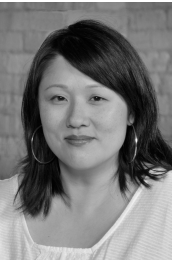 A decade ago, when I opened Sun Yung Shin’s debut collection, Skirt Full of Black (Coffee House Press 2006), one hundred pages of postcolonial sagacity in multiple tongues greeted me with echoes of Theresa Cha and Myung Mi Kim. I sensed a kindling - and kindred - spirit for Asian poet-sisterhood. Years later, as “machine poetas” of Margaret Rhee’s marvelous Kimchi Poetry Machine – with Devi Laskar, Erin Adair-Hodges, Micha Cárdenas, Shelley Lee, Hyejong Kook, and Terry Hong – our syllables mingled in multimedia cyberspace, enhanced by Sun Yung Shin’s startling lines of vivid rapture – and voluptuous rupture. I love Shin’s sequence of nested open parentheses in “Flower II, Calyx” from Skirt Full of Black. Flower II, CALYX “to conceal” * * * Blazing corolla (sweet apparition bud of smoke (ruptured confession kaluptein (permanent shroud of paradox (embrace an import of ivory this maiden portrait (graveside signature maternity (prototype * first there was a sword (glint of heavy elements made to pierce (tender my only-heart (cherry wounds drunken fruit (as lightning falls from heaven For this feature, I invited Sun Yung Shin to share about her current projects, as well. Shin writes, “I have been thinking a lot about fictional cyborgs, orientalist visions of the future, notions of purity, 19th century conceptions of the sublime, utopia ... this poem is in my new book that is about the politics of hospitality (guest/host relations), the uncanny valley, the monstrous female (always ...) ... ” The following poem, "Unalloyed," will appear in her forthcoming book, Unbearable Splendor (Coffee House Press 2016). -- By Karen An-hwei Lee, Poet of the Week. UNALLOYED Lambert: You admire it. Ash: I admire its purity. A survivor ... unclouded by conscience, remorse, or delusions of morality. - Alien, 1979, directed by Ridley Scott 1. The woman in white by the side of the road will eat your blushing heart and throw your alien, illegible, edible laws in the fire. 2. The woman in white has a face like a weapon. Sharpen it. If you could get inside her body you could ride in it like a vast and war-ready ship. Slaves at the oars disposable as time. Sections of time thrown overboard to lighten the load, for you will get heavier and heavier as time goes on. 3. The woman in white places her palms against your face like twin curses and leaves black marks all over your flesh, as if you were a herd animal being chosen for the next truck that arrives tomorrow. 4. You invent the internal tattoo and gently remove each organ for scarification, branding, and the gentle and vivid watercolor of the sewing needle. 5. You would like to devour permanence and dissolve it in your many stomachs. You would like to replace your skin when you grow weary of its memories, everything that seeps in it and never passes through, never evaporates. 6. This woman is a disappointment. Can she be exchanged, can she be returned, can she be reborn. Douse it again. 7. The palm reader does not hesitate to read the palm of any creature. Every creature has a future, every other creature speaks its own language that we cannot understand. It does not care about our future but it should. 8. Every woman is a source of terror. She is sublime, she gives chase like the white whale and she will destroy your ship and bring you down with her, tethered to her by a sewing needle. You break the surface of the water and become something else. A foreign object with no memory of your gills. You burn in the icy water. Your last image is of a beautiful woman you saw on a street once, she left a wake of terror which you reared back from as if it was fire. 9. In the 19th century, men were obsessed with the sublime, the distant, the unknowable, that which causes awe and terror. Alien, unknowable. Now men have forgotten the gods but not women, an ever renewable source and object of this enduring passion. On her hands, clever spiders, might wear a band of metal to mark her as yours. A miniature heart of coal compressed by time into something white and shining, a star while it still gives light. 10. This woman in white is a ghost. She is a machine. She will be a god. Her spirit is a sacrifice to cleanse the land of its sins. Blameless monarch. She is bathing inside you. Find her. A labyrinth, a fork in the path, your future. 신 선 영 Sun Yung Shin ______________________ Sun Yung Shin 신 선 영 is the author of the forthcoming books in 2016: prose collection Unbearable Splendor from Coffee House Press and essay anthology A Good Time for the Truth: Race in Minnesota from Minnesota Historical Society Press. Her poetry collections Rough, and Savage and Skirt Full of Black, winner of the Asian American Literary Award for Poetry, were also published by Coffee House Press. She co-edited the anthology Outsiders Within: Writing on Transracial Adoption and is the author of Cooper’s Lesson, a bilingual Korean/English illustrated book for children. She lives in Minneapolis. 9/14/2015 1 Comment Cross Tie 9.14.15: Cait Weiss
8/16/2015 0 Comments Cross Tie 8.16.15: Amaranth Borsuk
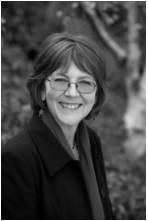 “Love leaves a trail in the scattered seed where small birds have feasted and in the smell of jasmine circling the doorway at nightfall.” ~ Marilyn McEntyre, opening lines from, “Where Love Has Been” The Light at the Edge (Fithian Press, 2006) Marilyn McEntyre is a poet attentive to what can be seen in the light. In addition to her poetry books, The Light at the Edge and Where Icarus Falls (1998), she has three collections of ekphrastic poems, published by Eerdmans and dedicated to selected artworks of the Dutch painters Vermeer, Rembrandt, and Van Gogh respectively: In Quiet Light (2000), Drawn to the Light (2003), and The Color of Light (2007). Paired with beautiful, full-color reproductions of the originals, her verses draw the reader’s vision gently into the worlds of poetry and paint, rendering the possibilities of interpretation in luminescent words. When I taught creative writing at Colorado Christian University, I liked to use The Color of Light in my poetry unit, not only because Van Gogh’s artwork reveals the immeasurable value of the artist’s calling and perseverance despite his lack of worldly success with love or money, but also because the collection shows many strategies a poet can use when writing ekphrastically, such as: - Describing a painting with attention to contrasting colors (“Self-Portrait with Gray Felt Hat”) - Describing a painting using a vivid list of what’s depicted in it so that the extraordinary significance of the ordinary becomes more apparent (“Van Gogh’s Bedroom”) - Imagining the life of a person portrayed in a portrait (“Portrait of Madam Trubac”) - Incorporating a biblical or literary allusion (“The Sower”) - Using the description of the painting to raise a philosophical question at the poem’s conclusion (“Landscape with House and Ploughman”) - Imagining what would happen if things depicted in the painting began to move closer or interact differently (“The Olive Trees”) - Imagining the sound of the music playing in the scene of the painting (“The Starry Night”) - Imagining the relationship between two people portrayed in a painting (“Couple Walking between Rows of Trees”) - Inverting a traditional interpretation of a painting (“Wheatfield with Crows”). “Wheatfield with Crows” is often considered Van Gogh’s last painting and associated with his suicide, but McEntyre sees the light in the darkness, for as she says at the conclusion of her poem: “the sun / that poured itself, day / after day into these stalks / shines. It shines.” Thus the poet turns from the negative toward photons of the positive. McEntyre’s poetry emerges from a life of faith, thought, and spiritual practice, which she has lived not only as a poet and teacher of poetry, but as a minister and a healer -- even as an angel of grace. She is particularly interested in a field known as the “medical humanities,” and she has worked with many groups of people to help them integrate creative expression, especially poetry, with the healing process. Her books A Faithful Farewell: Living Your Last Chapter with Love (Eerdmans, 2015), Patient Poets: Living Illness from the Inside Out (UC Medical Humanities Press, 2013), and Teaching Literature and Medicine (MLA, 2000) reflect her commitment. Marilyn McEntyre is a friend and colleague, someone I admire, and I believe anyone would enjoy her beautiful work. ~ Jane Beal, PhD, poet of the week. 6/24/2015 0 Comments Cross Tie 6.24.15: Amanda Chiado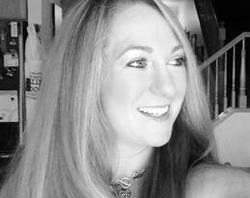 Amanda Chiado is a force to be reckoned with. In her poems you might find zombies, guns and knives, a certain sexiness and edge, even Houdini. You never really know what to expect in a Chiado poem, except that you'll be surprised and unsettled. A Best New Poet of 2009, chosen by Kim Addonizio, this young poet is already an impressive talent. Chiado is an MFA graduate of California College of the Arts. Her work is forthcoming or appears in It was Written: Poetry Inspired by Hip Hop, Arcana The Tarot Poetry Anthology, Drawn to Marvel: Poems from the Comic Books, Witness, Sweet, Forklift, Ohio, Best New Poets, Fence, Eleven Eleven and others. She currently works as the Program Coordinator for the San Benito County Arts Council and she is also an active California Poet in the Schools. Read her work and connect with her at www.amandachiado.com. Cathy Barber 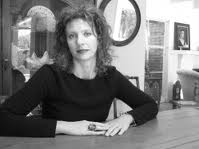 ... Though you are out now among the hyacinth-moths, a flicker of late embers between earth’s symmetry of shade and song—the seam between slight vibrations of chatter. I have carried you in dream. From Maureen Alsop's Gnosis: There is something magical, ethereal, about reading Maureen Alsop. Her words carry you toward the unexpected, and then suddenly you can’t breathe, or you’re breathing water. Even her prose is like silk tugged through a closed fist. She is also a wonderful collagist, and has done some gorgeous collaborative work, in particular her work with poet Hillary Gravendyk. Of all the poets I've read in recent years, Maureen has done the most to open my work to the possibilities of language. Maureen is an assistant editor for Poemeleon: A Journal of Poetry, a journal I founded in 2005, has led workshops for Inlandia, The Rooster Moans Poetry Cooperative, is author of four collections of poetry, and too many chapbooks to count. In addition, she is the recipient of numerous prizes including the Tony Quagliano International Poetry Award (Hawai‘i Council for the Humanities), Harpur Palate’s Milton Kessler Memorial Award in Poetry, Bitter Oleander's Frances Locke Memorial Award in Poetry, Eleventh Muse Poetry Prize, and six Pushcart nominations. -- Cati Porter, Poet of the Week |
Powered by Women
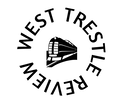
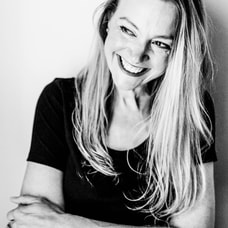
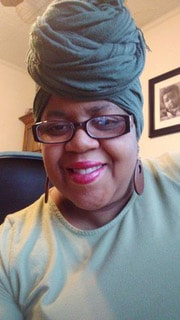
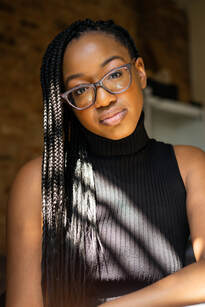
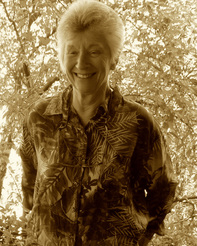

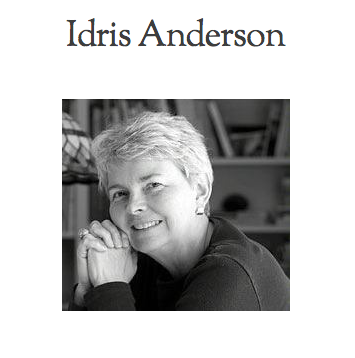
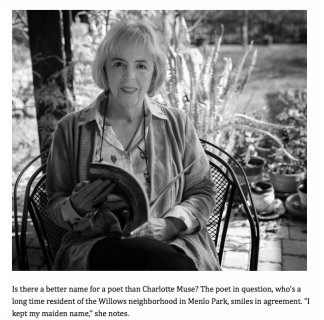
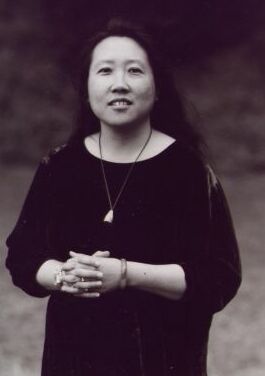
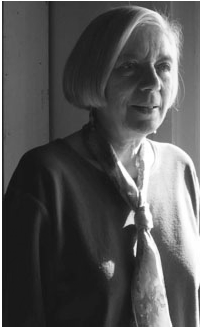
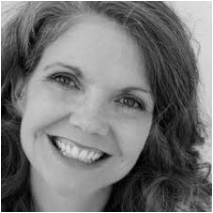
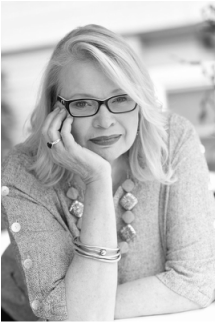
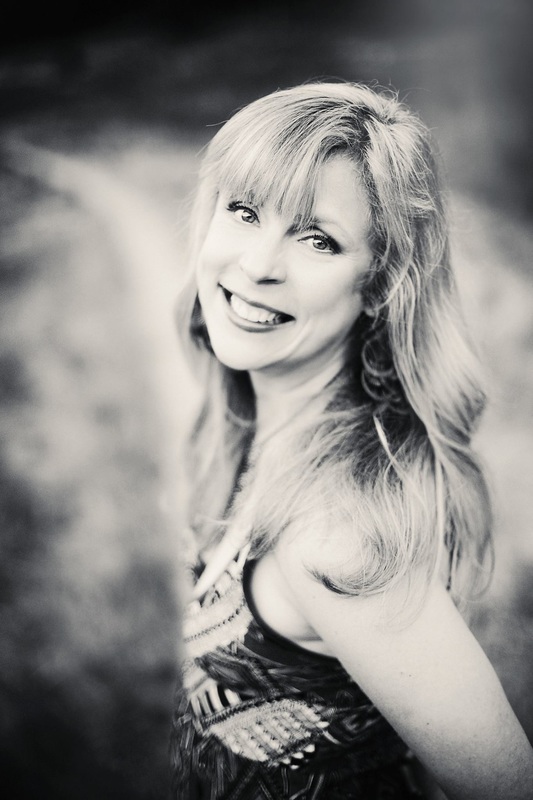
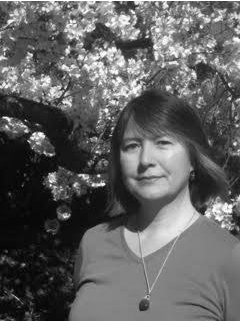
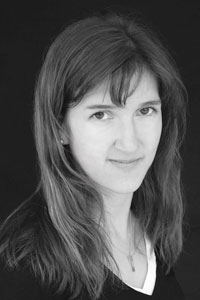
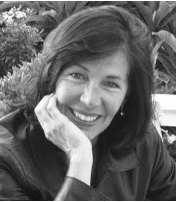
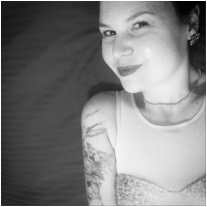
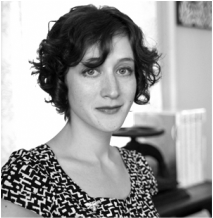
 RSS Feed
RSS Feed